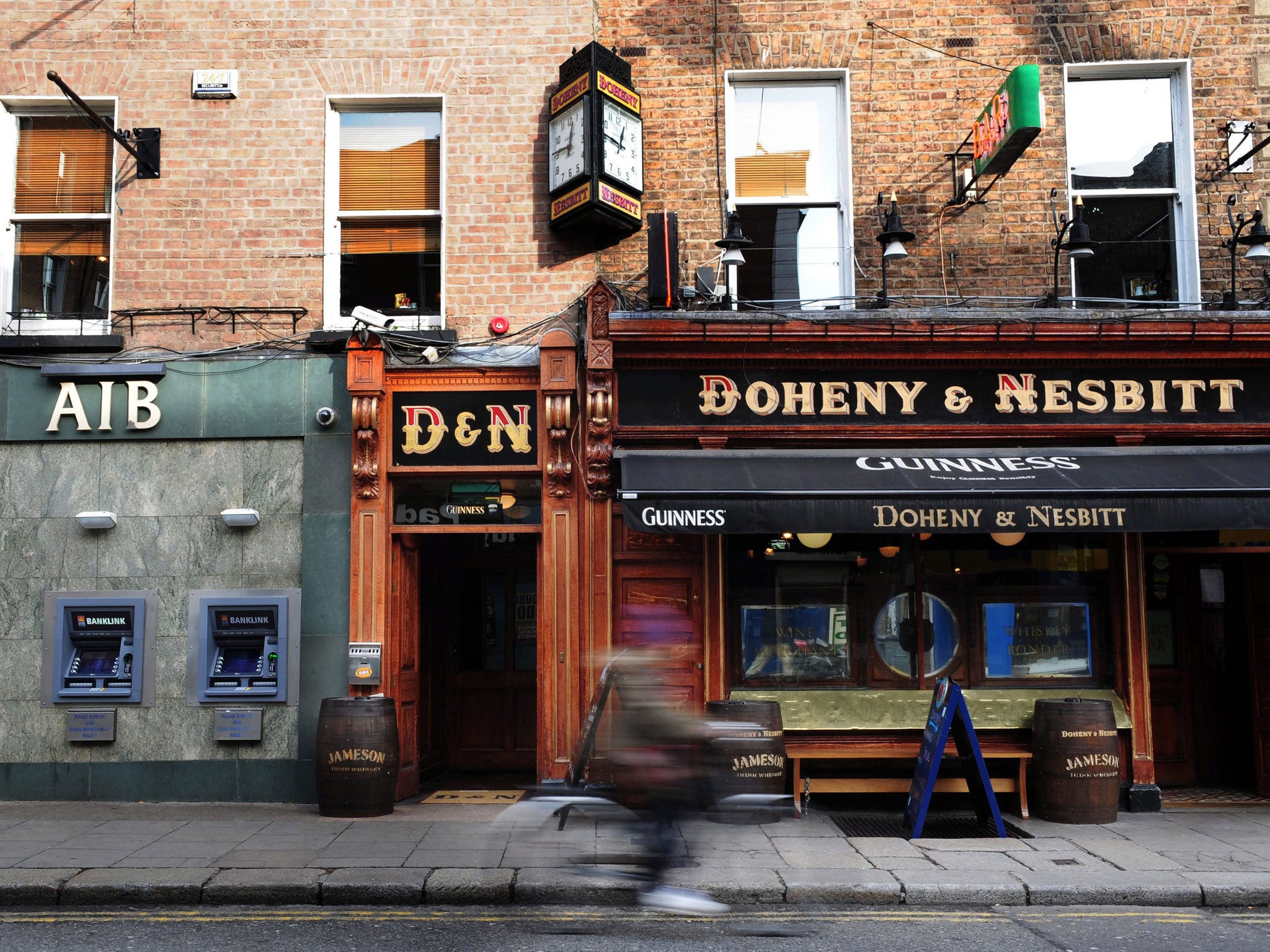"The actuality," Philip Roth wrote in 1960, "is continually outdoing our talents." I considered this while reading Paul Murray's third novel, the first since his acclaimed breakthrough, Skippy Dies (2010). Was it, I wondered, helpful or unhelpful to read Murray's credit-crunch comedy while the real, unpredictable drama concerning Greece's membership of the euro was unfolding?
In The Mark and the Void, which is set in Dublin as Ireland's economy goes into meltdown, bankers lament the "eurozone shit-show" of a few years ago. Greece is discussed, but it's very much a pre-Syriza Greece where citizens are protesting against their government's austerity programme. So is Murray's novel timely or simply a reminder that nothing looks more dated than a relic of the recent past?
The answer is "both" – which encapsulates my ambivalence towards this book. At the outset, the French narrator, Claude, meets Paul, a novelist who wants to shadow him and write about the disillusioned banker as "a modern Everyman, experiencing a typical day." The Bank of Torabundo, Claude says, is a "shadow-place", but perhaps this is true of many workplaces. At work, we're our shadow selves and, in an age of short contracts and hot desking, many people are, like Paul, outsiders in the offices they pass through. "We have all come here to forget," Claude says. "Although in most cases before anything has actually happened." Long days in sterile environments are conducive to forgetting and, at this point, Murray looks set to deliver a prescient meditation on the modern workplace.
Unfortunately, that isn't what we get because it turns out that, instead of writing about Claude, Paul wants to rob the bank. There follows some fairly amusing office comedy, reasonable but predictable critique of capitalism's injustices, a grotesque scene concerning bankers and strippers, east Europeans with silly accents, and screwball escapades involving literary rivalry, art, theft and metafictional playfulness. Paul thinks "modern people live in a state of distraction" which is one reason why he gives up writing.
Instead, he founds www.myhotswaitress.com (see for yourself) which sells information to men who want to stalk waitresses. "Loneliness," Paul explains, "is one of the few growth areas these days." He tries to exploit Claude's crush on Ariadne, the pretty waitress at Claude's favourite café, but in spite of Paul's meddling, Claude's stuttering but tender romance is the best thing in the novel. As protesters gather outside the bank, Claude knows he's on the wrong side of the argument. Ariadne is instrumental to his personal transformation, salvation and hope of a happy ending.
The writer William Goldman famously observed that in Hollywood "nobody knows anything", and for Murray, the same is true of the world of finance. "It's a fiction," Claude says of the bank and, when his report warning off investors is doctored by his bosses, he realises: "Maintaining these charades is what professionalism means."
But is Murray's fiction about "a fiction" funny? I enjoyed the bank's plausibly ridiculous "counterintuitive strategy" of "monetising failure". I smiled when Paul considered writing a mystery with a "3D finger pointing out" of its final page: "It was YOU!" But I never laughed out loud.
In part, this comes down to personal taste and many readers who loved Murray's previous novel will thrill to his madcappery here. I feel rather a stick-in-the-mud for not being swept along by Claude's capers but we can't always help what we do and do not find funny. After all, when asked if his comedies were influenced by the stand-up comic Lenny Bruce, Philip Roth said he preferred "a sit-down comic named Franz Kafka". Murray strikes me as more of a Bruce kind of guy.

Join our commenting forum
Join thought-provoking conversations, follow other Independent readers and see their replies
Comments